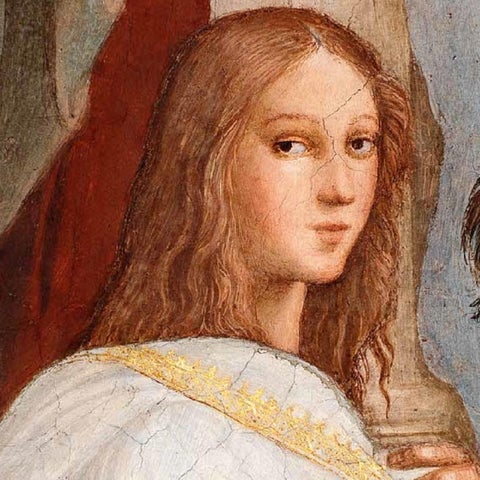
Close-up of Hypatia from Raphael's "The School of Athens" (1509-1511)
In the ancient world, being a philosopher could get you killed!
That’s what happened to Hypatia (c.350-415 AD), a teacher, philosopher, and mathematician who lived in Alexandria, Egypt. The daughter of mathematician Theon of Alexandria, she became famous in her own right as a teacher, with students traveling from around the Mediterranean to learn from her.
Hypatia lectured on the writings of Plato and Aristotle, and wrote commentaries on classical mathematical works. Until recently scholars thought that all her work was lost, but today we believe that several later texts contain sections and diagrams taken directly from her work.
Hypatia was deeply interested in astronomy – then considered part of mathematics – andconstructed her own versions of astrolabes and hydrometers, instruments used for physics and astronomy research. One student wrote that she “excelled her father in mathematics.” Another said that she “honorably presides over the mysteries of philosophy.”
Unfortunately, her status as an unconventional and influential woman also made her powerful enemies. In 415 AD, a political mob brutally murdered her, sending shockwaves throughout the Roman Empire: before her death, people usually saw philosophers as untouchable.
Though her life and career were cut short, Hypatia lives on: as the first well-recorded female mathematician, and as a symbol of women’s research and inquiry that has endured throughout the centuries.